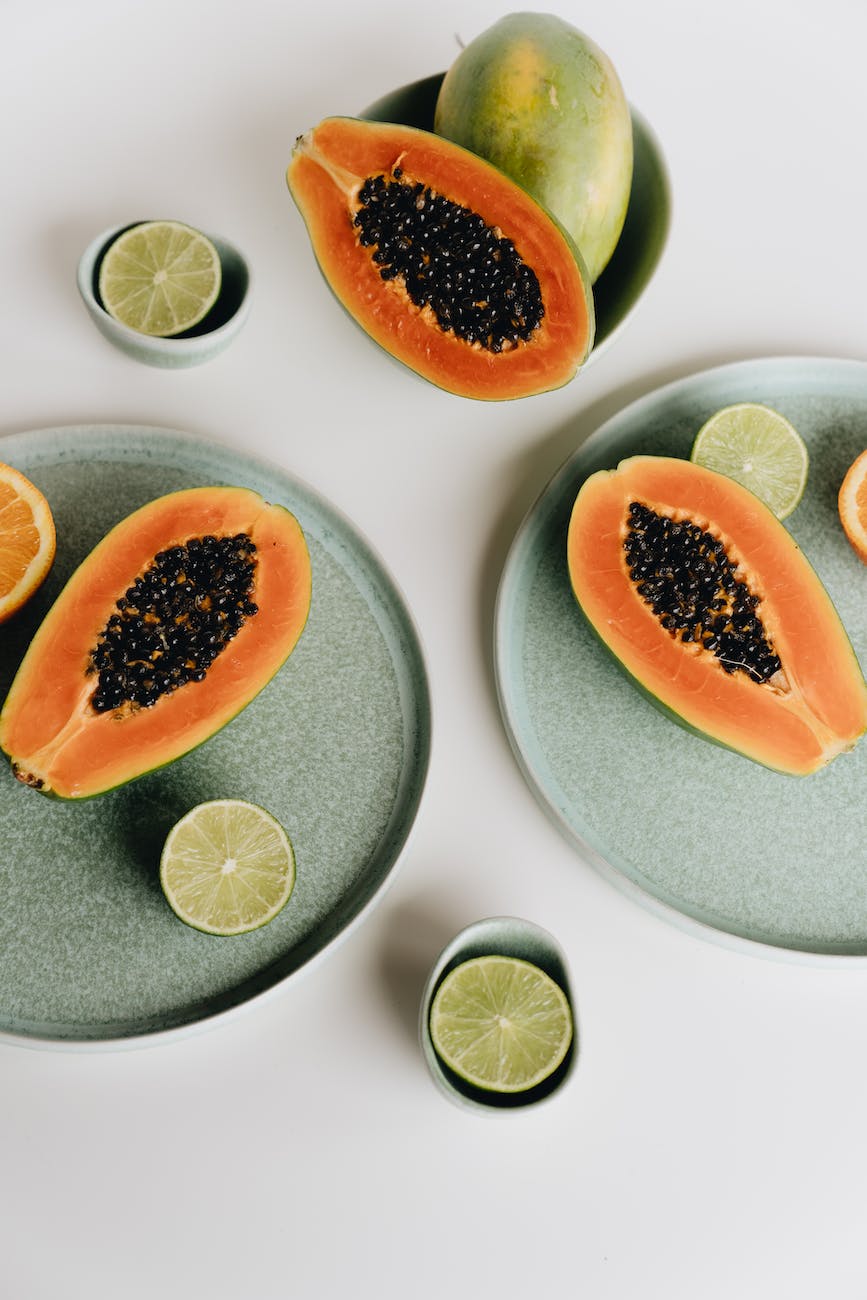
Gout is a complex form of arthritis that can cause sudden and severe pain, swelling, and inflammation in the joints. It’s caused by high levels of uric acid in the blood, which can form crystals in the joints. Fortunately, dietary changes can significantly reduce gout symptoms and prevent flare-ups. In this guide, we will delve into the impact of various foods on gout and how they can help or exacerbate the condition.
Understanding Gout
Gout is a condition caused by an excess of uric acid in the blood, a condition known as hyperuricemia. Uric acid is produced by the body when it breaks down purines, substances found in your body and in certain foods. When the body produces too much uric acid or doesn’t excrete enough through the kidneys, it can build up and form sharp, needle-like crystals in a joint or surrounding tissue, causing pain, inflammation, and swelling.
The Role of Diet in Managing Gout
Diet plays a crucial role in managing gout. Certain foods can raise uric acid levels and trigger a gout flare-up, while others can lower uric acid levels and reduce the risk of an attack.
Foods to Avoid
- High-Purine Foods: Purines are natural substances found in some foods that break down into uric acid in the body. Foods high in purines include organ meats, game meats, certain fish (like anchovies, herring, and mackerel), and seafood (like scallops, mussels, and lobster).
- Sugary Drinks and Foods: Fructose-sweetened drinks and foods can increase uric acid levels. Avoid sugary beverages like soda and fruit juices, as well as sweets and desserts high in added sugars.
- Alcohol: Alcohol, especially beer, can interfere with the removal of uric acid from the body. Drinking alcohol can trigger a gout attack.
Foods to Include
- Low-Purine Foods: These include fruits, vegetables, whole grains, and low-fat dairy products. These foods are also generally low in calories and high in nutrients, which can help you maintain a healthy weight.
- Vitamin C: Foods high in vitamin C, like citrus fruits, bell peppers, strawberries, and kiwi, may help lower uric acid levels.
- Coffee: Some research suggests that drinking coffee, both regular and decaf, may lower the risk of gout.
- Water: Staying well-hydrated can help flush uric acid from the body and prevent gout attacks.
Lifestyle Changes for Gout Management
In addition to dietary changes, certain lifestyle modifications can help manage gout:
- Maintain a Healthy Weight: Being overweight increases the risk of gout. If you’re overweight, losing weight can reduce uric acid levels and lower the risk of gout attacks.
- Stay Hydrated: Drink plenty of fluids, especially water, to help flush uric acid from your body.
- Exercise Regularly: Regular physical activity can help maintain a healthy weight and lower the risk of gout.
- Limit Alcohol: If you choose to drink alcohol, do so in moderation. Excessive drinking can increase uric acid levels and trigger gout attacks.
- Take Medication as Prescribed: If you’ve been prescribed medication for gout, be sure to take it as directed by your doctor.
Remember, while diet and lifestyle changes can help manage gout, they’re not a substitute for medical treatment. If you have gout, it’s important to see a healthcare provider for a proper diagnosis and treatment plan.
V arious Food Items and their Impact on Gout
Let us delve into various food items and their impact on gout, providing essential information for gout sufferers to make informed dietary choices.
1. Pasta and Gout: Pasta, made from refined wheat flour, is relatively low in purines, making it generally safe for gout sufferers. However, moderation is key as pasta is a carbohydrate-rich food that can contribute to weight gain, a potential risk factor for gout. Pairing pasta with gout-friendly sauces containing vegetables and lean proteins can enhance its nutritional value.
2. Rice and Gout: Both white and brown rice are considered low-purine foods, suitable for individuals with gout. Brown rice, being a whole grain, offers additional health benefits like fiber and nutrients. Incorporating brown rice into the diet can support better digestion and overall health.
3. Cheerios Cereal and Gout: Cheerios is a popular low-purine cereal option. Its simple ingredients and low sugar content make it a suitable choice for gout sufferers. However, it’s crucial to be mindful of portion sizes and avoid flavored versions that may contain added sugars.
4. Eggs and Gout: Eggs are an excellent source of high-quality protein and are generally considered safe for individuals with gout. They have a low purine content and can be enjoyed in various ways, such as boiled, scrambled, or in omelets.
5. Shrimp and Gout: Shrimp contains moderate to high levels of purines, which may trigger gout attacks in some individuals. As a result, it is advisable for gout sufferers to consume shrimp in moderation or avoid it altogether.
6. Red Wine and Gout: Moderate consumption of red wine has been associated with potential health benefits, including anti-inflammatory properties. However, excessive alcohol intake, including red wine, can raise uric acid levels and worsen gout symptoms. It is best for individuals with gout to limit alcohol consumption.
7. Oatmeal and Gout: Oatmeal is a gout-friendly grain rich in soluble fiber, which can aid in managing cholesterol levels and promoting heart health. Its low purine content makes it an excellent choice for gout sufferers. Adding nuts and berries can enhance the taste and nutrient profile of oatmeal.
8. Yogurt and Gout: Plain, unsweetened yogurt is generally safe for individuals with gout. It is a good source of calcium and probiotics that support gut health. Low-fat or non-fat yogurt is preferable to avoid excessive saturated fat intake.
9. Corn and Gout: Corn is considered safe for gout sufferers as it is a low-purine vegetable. Enjoying corn on the cob or incorporating it into salads can add variety to a gout-friendly diet.
10. Energy Drinks and Gout: Energy drinks often contain high levels of sugar and caffeine, which may not be beneficial for gout management. The excess sugar content can contribute to weight gain, and caffeine may impact uric acid levels. It’s best to avoid energy drinks and choose healthier alternatives like water or herbal teas.
11. Best Protein for Gout Sufferers: When it comes to protein sources, lean options such as chicken, turkey, and fish are preferable for gout sufferers. These proteins have lower purine content compared to red meat and organ meats, which may trigger gout flare-ups.
12. Garlic and Gout: Garlic is a flavorful and aromatic herb that offers various health benefits. It is considered safe for gout sufferers and can be included in cooking to enhance the taste of gout-friendly dishes.
13. Soy and Gout: Soy products, such as tofu and tempeh, are low in purines and can be included in a gout-friendly diet. They provide plant-based protein and are suitable alternatives to high-purine meats.
14. Mushrooms and Gout: Mushrooms contain moderate purine levels, and some individuals with gout may tolerate them in small portions. However, it’s essential to monitor their impact on individual gout symptoms.
15. Gluten and Gout: Gluten itself does not directly impact gout, but certain gluten-rich foods may contain high-purine ingredients. Gluten-containing grains like wheat are generally safe for gout sufferers, but moderation is key.
16. Chicken and Gout Attacks: Chicken is a popular lean protein source, and while it is generally considered safe for gout sufferers, some individuals may experience gout attacks after consuming certain meats. Moderation and monitoring how chicken affects your symptoms are essential.
17. Pineapple and Gout: Pineapple contains bromelain, an enzyme with anti-inflammatory properties that may help reduce gout-related inflammation. Including fresh pineapple in your diet can be beneficial, but avoid canned versions with added sugars.
18. Peanut and Gout: Peanuts are legumes and, therefore, have a moderate purine content. While they may not trigger gout symptoms in everyone, individuals with gout should consume peanuts in moderation.
19. Chocolate and Gout: Chocolate itself does not contain purines, but certain chocolate products, especially dark chocolate, may have added ingredients like nuts that could trigger gout. Opt for low-purine chocolate options or enjoy it in moderation.
20. Sugar and Gout: Excessive sugar intake can contribute to weight gain and increase the risk of gout. Avoiding sugary beverages and processed foods is advisable for individuals with gout.
21. Bread and Gout: Most types of bread, including white, wheat, and whole grain, are considered low in purines and safe for gout sufferers. However, it’s essential to avoid bread with high-purine toppings or fillings.
22. Pizza and Gout: Pizza is a combination of various ingredients, some of which may be high in purines, such as certain meats and cheeses. Opt for gout-friendly pizza toppings like vegetables and lean proteins.
23. Dairy and Gout: Dairy products are generally low in purines, and low-fat or non-fat options are preferred to avoid excessive saturated fat intake. Incorporating dairy into your diet can provide essential nutrients like calcium and vitamin D.
24. Celery for Gout: Celery is believed to have anti-inflammatory properties and may help reduce gout symptoms. Including celery in your diet can be beneficial, especially in salads and soups.
25. Milk and Gout: Milk is considered safe for gout sufferers and can be included as part of a gout-friendly diet. It is a good source of calcium and can help maintain bone health.
26. Cheese and Gout: Cheese contains moderate purines, but most types of cheese are safe for gout sufferers when consumed in moderation. Low-fat or reduced-fat cheese options are preferable.
27. Nuts and Gout: Nuts have varying purine levels, and some may trigger gout symptoms in certain individuals. However, small portions of low-purine nuts, such as almonds and cashews, can be included in a gout-friendly diet.
28. Mayonnaise and Gout: Mayonnaise is generally low in purines and can be used in moderation in gout-friendly recipes. However, be cautious about added ingredients that may contain purines.
29. Red Wine Good for Gout: Moderate red wine consumption has been associated with potential health benefits due to its polyphenol content. However, it’s essential to consume alcohol in moderation and avoid excessive intake.
30. Potatoes and Gout: Potatoes are a starchy vegetable and have low purine content, making them a suitable option for gout sufferers. Avoid adding high-purine toppings or cooking methods.
31. Cherries for Gout Symptoms: Cherries, particularly tart cherries, have been linked to a reduction in gout symptoms due to their anti-inflammatory properties. Including cherries or cherry juice in your diet may help manage gout.
32. Pork and Gout: Pork is a high-purine meat and may trigger gout attacks in some individuals. Reducing or eliminating pork consumption is recommended for gout management.
33. Wheat and Gout: Wheat is generally safe for gout sufferers. However, certain wheat-based products, such as bread with high-purine fillings, should be consumed in moderation.
34. Salmon and Gout: Salmon is a fatty fish rich in omega-3 fatty acids, which have anti-inflammatory properties. Including salmon in your diet can benefit gout management and overall health.
35. Tuna and Gout: Tuna has moderate to high purine content and may trigger gout attacks in some individuals. Limiting tuna consumption is advisable for gout sufferers.
36. Cereal and Gout: Most cereals are low in purines, making them a safe option for gout sufferers. Choose low-sugar and whole grain options to support overall health.
37. Almond and Gout: Almonds are considered low in purines and can be included in a gout-friendly diet. They provide essential nutrients and healthy fats.
38. Orange Juice Gout: Orange juice is generally safe for gout sufferers when consumed in moderation. However, it is best to choose fresh-squeezed or low-purine juice options.
Conclusion
Gout can be a painful and debilitating condition, but with the right dietary and lifestyle changes, you can manage your symptoms and reduce the risk of flare-ups. By understanding which foods to avoid and which to include in your diet, you can take a proactive approach to managing your gout and improving your overall health.
Remember, everyone is different, and what works for one person may not work for another. It’s important to work with your healthcare provider or a dietitian to create a gout-friendly diet plan that fits your personal needs and preferences.
If you found this guide helpful, please share it with others who may benefit. And if you have any questions or comments, feel free to leave them below. We’d love to hear from you!
Disclaimer: This article is intended for informational purposes only and is not a substitute for professional medical advice, diagnosis, or treatment. Always seek the advice of your healthcare provider with any questions you may have regarding a medical condition.














